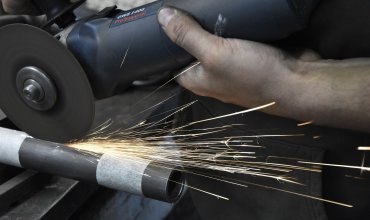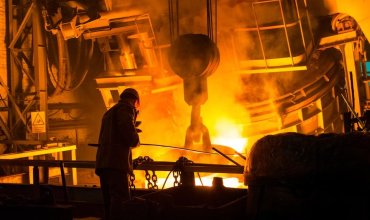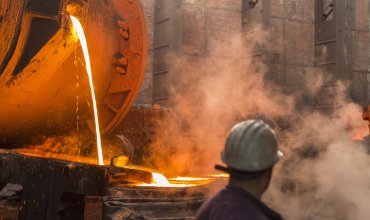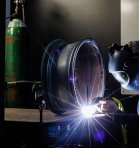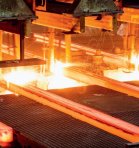Metal recovery is a topic that has been gaining attention in recent years, especially in an environmental and industrial context. In Poland, as well as around the world, there is a growing awareness of the environmental impact of waste. Therefore, recycling and recovery processes are becoming crucial. This article will introduce you to various aspects of metal recovery, with a focus on the situation in Poland. We will discuss the procedures, the environmental and economic benefits, and the existing technologies that enable effective metal recovery.
Metal recovery in Poland: current status and prospects
Current status of metal recovery
The current state of metal recovery in Poland looks quite optimistic. According to the latest data, our country is among the top European countries in terms of the amount of metal waste processed. There are numerous companies operating that specialize in recycling metals, both common ones such as iron and steel, as well as precious and rare metals such as copper and aluminum.
Among the most important activities in this field are waste segregation systems, which significantly facilitate the recovery of raw materials. Also important is the processing infrastructure, which allows for the efficient processing of large quantities of metals into secondary raw materials.
Industry development prospects
Looking ahead, the prospects for the development of the metal recovery industry are very promising. The dynamic development of recycling technologies and the growing environmental awareness of society mean that we can expect further growth in this field. It is worth mentioning here the planned investments in modern processing plants and innovative technologies that will allow even more effective metal recovery.
Technologies used in metal recovery
Mechanical methods of metal recovery
Some of the most commonly used are mechanical methods of metal recovery. Examples of their use include various types of crushers, mills and separators, which allow metals to be effectively separated from other materials.
Mechanical recycling processes are particularly effective for large pieces of metal, such as machine components or steel structures. In such cases, metals can be reused with almost no loss of quality. This is particularly important in the construction and automotive industries, where materials must meet strict quality standards.
Chemical methods of metal recovery
Chemical recovery methods, such as hydrometallurgy and pyrometallurgy, are essential for more advanced recycling processes. Hydrometallurgy involves using various types of acids and bases to dissolve metals for subsequent separation. Pyrometallurgy, on the other hand, are high-temperature processes such as melting and refining metals.
In Poland, chemical methods of metal recovery are mainly used in the electronics industry, where high precision and purity of recovered raw materials are required. The recovery of metals from electronic devices such as computers and cell phones is a complicated process, but at the same time a necessary one due to the growing volume of electronic waste.
Environmental benefits of metal recovery
Reduction of landfill waste
One of the most important aspects of environmental benefits of metal recovery is the significant reduction in the amount of waste that ends up in landfills. It is worth noting that metals, especially base metals, are one of the main problems of today's landfills. With efficient recovery, it is possible to reduce the volume of waste, which translates into a lower environmental burden.
Conservation of natural resources
Metal recovery also makes it possible to reduce the extraction of new raw materials. This is a huge advantage from the point of view of natural resource conservation. Metal mining is associated with land degradation and air and groundwater pollution. Recycling makes it possible to preserve these resources for future generations.
Metal recovery in practice: a case study
Example of a Polish recycling company
An excellent example in the context of metal recovery in practice is the XYZ Recycling company operating in Poland, which specializes in processing metal waste. This company has implemented modern, automated technologies that allow for the effective recovery of metals from various sources.
Innovative projects and initiatives
There are a number of innovative recycling projects and initiatives in Poland that aim to accelerate metal recovery. One such project is a program funded by the National Fund for Environmental Protection and Water Management, which supports the development of new recycling technologies.
Challenges and barriers to metal recovery
Technological barriers
Despite the numerous advantages, technological challenges in metal recovery remain a significant problem. Highly advanced technologies are costly, and their implementation on a mass scale often faces various difficulties. Continuous further training of specialists and investment in modern technologies are needed to make recycling processes more efficient.
Lack of public awareness
Lack of full public awareness of the importance and benefits of metal recovery is another barrier. Despite numerous information campaigns, there are still many people who are unaware of the importance of metal recovery for environmental and natural resource protection. Environmental education should be one of the priorities to change this state of affairs.
Summary
In this article we discussed a wide range of issues related to metal recovery: industry and ecology, with emphasis on the situation in Poland. The current state and prospects of the industry are presented, as well as the technologies used, the ecological benefits and the challenges it faces. Metal recovery is not only a technological process, but also an important part of the circular economy, which is of great importance for the protection of our environment. That's why it's so important for each of us to get involved in recycling efforts and support initiatives that strive for sustainability.



